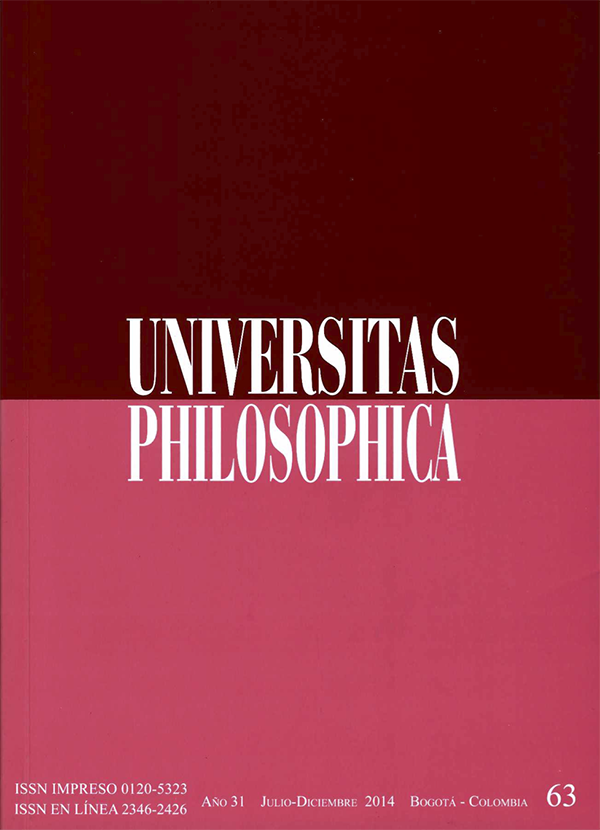Abstract
In this paper we will try to show how Gabriel Marcel understands the junction between the self and the other as appears in his reflections on the opposition freedom-gift, on his critique of Sartre’s philosophy of freedom, and on metaphysical implications of love. These three approaches point out a way that leads to understand man’s tension between selfhood and alterity, in the heart of a fundamental communion which refer, ultimately, to the divine. Therefore, metaphysical and religious discourses are constantly crossing but, instead of revoking value to Marcel’s philosophy, this double rapport teaches us a way of attending religious symbols and testimonies in order to get close to the meaning of human experience.
This journal is registered under a Creative Commons Attribution 4.0 International Public License. Thus, this work may be reproduced, distributed, and publicly shared in digital format, as long as the names of the authors and Pontificia Universidad Javeriana are acknowledged. Others are allowed to quote, adapt, transform, auto-archive, republish, and create based on this material, for any purpose (even commercial ones), provided the authorship is duly acknowledged, a link to the original work is provided, and it is specified if changes have been made. Pontificia Universidad Javeriana does not hold the rights of published works and the authors are solely responsible for the contents of their works; they keep the moral, intellectual, privacy, and publicity rights.
Approving the intervention of the work (review, copy-editing, translation, layout) and the following outreach, are granted through an use license and not through an assignment of rights. This means the journal and Pontificia Universidad Javeriana cannot be held responsible for any ethical malpractice by the authors. As a consequence of the protection granted by the use license, the journal is not required to publish recantations or modify information already published, unless the errata stems from the editorial management process. Publishing contents in this journal does not generate royalties for contributors.


